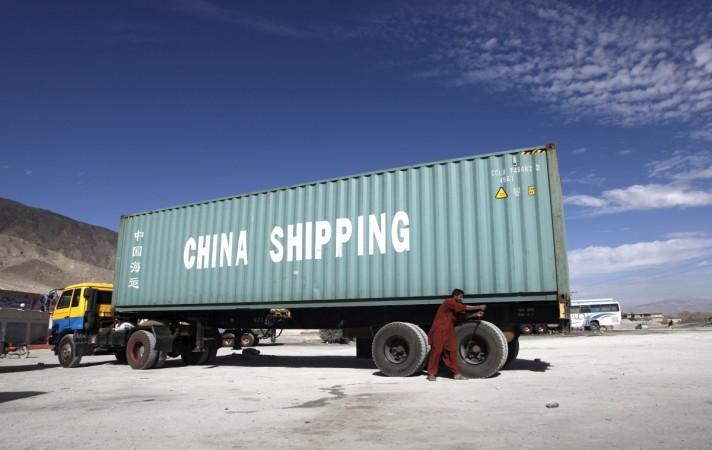
The relations between the Chinese and Pakistanis looked to have grown warmer on Monday when a contingent of 90 members of the Chinese armed forces reached Pakistan to take part in the parade on Pakistan Day, i.e., March 23.
Chinese Major General Li Chan said on the occasion that the contingent aimed at making the ties between China and Pakistan "even stronger". He also termed Pakistan as China's "closest friend, best friend, and strategic ally".
There is no denying that the Chinese and Pakistanis are close for historical reasons. At the height of the Cold War, both the Chinese and Pakistanis contributed to the ideological warfare against the Soviets. They also found India a common reason to strike up a friendship.
Today, the two countries have the China-Pakistan Economic Corridor (CPEC) as another reason to boost their friendship. Both countries are in the hunt for a new world order that may not feature the United States in a pivotal role. But even then, do the Chinese really consider the Pakistanis a genuine ally or is this all part of a grander plan?
China befriends Pakistan to safeguard its own borders
The aim to keep India under pressure certainly brings China and Pakistan closer (actor Kamal Haasan was right when he said during an interview that had India and Pakistan not been partitioned, China would not have dared meddle with us). But there is one even bigger reason for China's eternal love for Pakistan and that is to safeguard its own territory from terror threats from Pakistan.
China has a very realistic foreign policy
The Chinese are very realistic when it comes to their foreign policy. Beijing is one of those countries that help others not in cash, but by building infrastructure – to exert social influence and also win loyalty.
The much-vaunted CPEC is just the project to expand Chinese influence in other strategically important regions. And by making Pakistan a party to this, China has not only tried to keep India and the US under pressure, but also helps it reach crucial regions in central and West Asia for its own diplomatic and economic benefits.
Similarly, China has also tried to protect its own borders from probable terror threats emanating from Pakistan. By promising Pakistan a better economic future, China has extracted from the Pakistanis the favour of reining in terrorists who have threatened security in Xinxiang in western China.
Pak's anti-terror actions have not satisfied China
However, the Pakistanis have not been able to please the Chinese in this game of quid pro quo. In January this year, the Xinhua news agency reported that the head of the Xinxiang province expressed the desire to tighten security along the China-Pakistan border to prevent terrorists from moving around in the region. Authorities in the Kashgar prefecture, bordering Pakistan, also stressed the same.
Last year in April, Pakistani President Mamnoon Hussain announced during a visit to Beijing that almost all members of East Turkestan Islamic Movement, a Uighur militant group, had been eliminated from Pakistan. The effort from the Pakistani side to please the Chinese on the question of terrorism is clear and they even acknowledge that terror elements did set up their bases in Pakistan.
China has lifted the veil and asked: Why shield Masood Azhar?
But the Chinese, who had once worked closely with Pakistan to back militants fighting the Soviet occupation of Afghanistan and relied on the Inter-Services Intelligence (ISI) to tackle the Uighur terror problem, have seen their faith decline over the years because of the latter's failure to control extremists.
It has even questioned Pakistan's justification for shielding Masood Azhar at the United Nations, although it did this behind the scenes. Questions have also been raised in China's diplomatic circles as to why pakistan would shield a known terrorist. The Uighur problem and targeting of Chinese workers in Pakistan's crucial Gwadar port in Baluchistan province has also left the Chinese upset.
China maintains a state-to-state relation with Pak to get full benefits
Against this backdrop, the Chinese know that it is important to maintain a perfect state-to-state relationship with the Pakistanis so that the latter's institutions like government, bureaucracy, diplomats and the military can be used to defend its own borders in lieu of granting some economic benefits.
It is for this reason that the Chinese have decided to overlook the disappointments in Pakistan over the criticism of the CPEC.
But where will this policy eventually take China? Beijing hasn't been consistent when it comes to Pakistan as a terror-sponsoring country by differentiating its own view from India's.
Economically, India is of a bigger significance to China than Pakistan, and as pundits often say, the 21st century belongs to India; China's double standards on terrorism seems to a self-defeating ploy.















